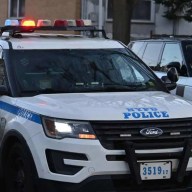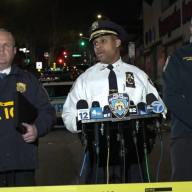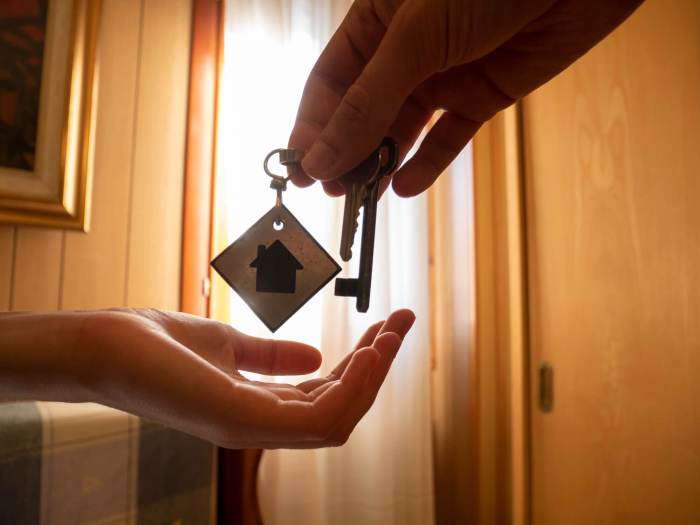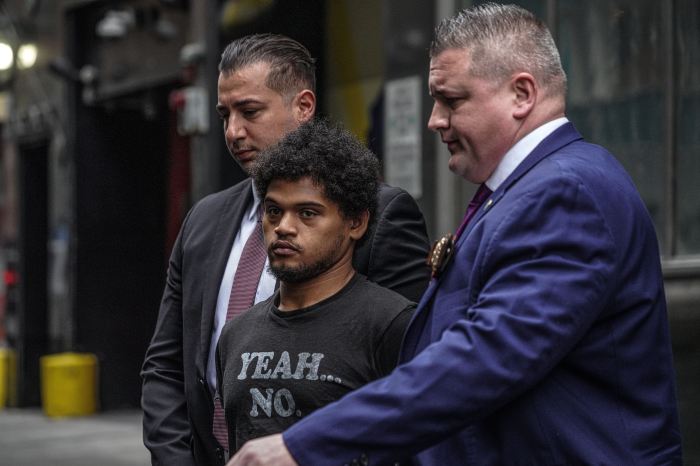At the most recent meeting of the Country Club Civic Association on Wednesday, May 26, held at Villa Maria Academy’s cafeteria, there was much to discuss, but most importantly for one group was the creation of a neighborhood civilian patrol to address incidents of drug dealing and youth congregation.
Due to Country Club’s relatively low crime rate, the 45th Precinct’s patrol cars are usually elsewhere in the precinct, leaving this tiny neighborhood exposed to some criminal activity.
“We have the backing of the 45th, and of our local elected officials, to create a civilian patrol,” said Mike McNerney, of Parsifal Place, who is hoping to become the association’s new vice president. Civic association president Marcia Pavlica showed off the large magnetic signs that can easily transform a resident’s car into a patol vehicle when attached to the driver’s door. But McNerney suggested the need for separate vehicles.
“With the Internet and everything these days, kids could run your plate online to the DMV site. Next thing you know you get rocks hurled through your windows,” he warned.
McNerney also made it clear to the group that he isn’t talking about running around like a vigilante with a baseball bat, but just providing a formidable presence around the neighborhood at night.
Everyone has a story to tell about witnessing a drug deal in Country Club.
“This is not what we went through in the 70s,” acknowledged Pavlica. Country Club locals pointed out that on the corner of Waterbury and Baisley avenues, as well as by Valhalla Drive, they’ve seen teens buy drugs with no regard for being seen by residents, as long as there are no police present.
“Drugs should be the #1 priority here,” said Bob DeTiberiis. DeTiberiis noted that he has called police before, but it doesn’t help because as Ed McGee of Valhalla Drive pointed out, after the police drive through “the dealers are only shifted from block to block.”
McNerney calmed everyone down, then leveled with them: “I can tell you the police are not interested,” he said. “You’re talking about selling dime bags here, not moving big kilos of coke. It’s not a priority for them.”
Bill Etzel pointed out another, but related problem. “Parents drive their little kids over to Agar Place and Campbell Drive now,” he said. “They think that corner is a playground. But there are no toilet facilities, so the kids walk on your lawn and use your yard as their bathroom.”
Etzel suggested police involvement first, but warmed up to the civilian patrol idea as soon as others pointed out that the police may be unable to stop this from happening.
One thing seems clear: for the civic association to begin enacting change, they’ll need more active participation from its members.
“Where are our 400 members?” asked the frustrated, energetic Frank Menillo, who helped start the organization. “How are we going to start this patrol or get anything done with a dozen people?”
As it happens, the group’s new ideas might be coming to the fore at just the right moment. With new elections coming up, there is a chance for the Country Club Civic Association to recruit new blood and urge its preexistent membership to get more actively involved.
“It comes to the point where you have to help yourselves, because no one else is going to help you,” McNerney announced. “We have to take the matter into our own hands.”

















